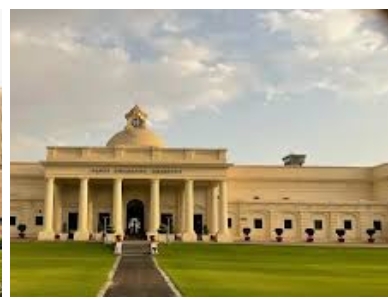IIT system faces difficulties as several IITs build campuses abroad as part of India’s soft power efforts.
The Indian Institute of Technology (IIT) is globally recognized as the crown jewel of the Indian higher education system. In fact, these are often the only Indian higher education institutions known internationally. They have trained leaders in high-tech and related fields in India and abroad. IITs may be the most difficult higher education institutions to get into in the world, with more than a million students taking the entrance exam each year and competing for 17,385 places at 23 international institutes. However, the IIT system faces difficulties as many schools build branches abroad as part of India’s soft power efforts. It is necessary to look closely at current realities to understand the impending crisis.
Adventure abroad
A satellite campus of IIT-Madras was recently opened in Zanzibar, and IIT Delhi will launch its programs from its Abu Dhabi campus in 2024. A small initial batch of 70 students has been accepted. How many faculty members from the Chennai campus will be based in Zanzibar (this is often a problem for Western campuses)? Admission criteria are not the same as at home. Admissions are based on IIT Madras Zanzibar Selection Test (IITMZST) 2023 screening test followed by interview. A number of screening centers are offered to potential candidates not only in Tanzania but also in Ethiopia, Nigeria, Kenya, Uganda and the UAE (where there is a significant Indian community presence).
Initially, the Zanzibar campus offered only two programmes: a Bachelor of Science in Data Science and Artificial Intelligence and a Master of Technology in Data Science and Artificial Intelligence. It is open to students from all over the world. The annual tuition fee is $12,000 for the Bachelor’s program and $4,000 for the M.Tech program, and as mentioned, there are only 70 students enrolled. Reports say that the rules and regulations for the IITM Zanzibar campus will be based on the existing rules of IIT Madras.
College challenges and future prospects
At the heart of every academic institution are professors. Attracting the best and brightest is becoming increasingly difficult. Salaries are well below international standards. Indians educated abroad are often reluctant to return to uncompetitive salaries, poorer work environments, and more academic bureaucracy (although the Indian Institutes of Technology are less restrictive than the rest of the academic system). India’s best talent is increasingly drawn to the growing IT sector, emerging biotechnology and related fields – rather than to academia – both in India and abroad.
Currently, the IIT system is seriously lacking in scientists. In 2021, of the 10,881 sanctioned positions, 4,370 were vacant.
It would not be an exaggeration to say that the Indian Institute of Technology is in crisis. Building quality into new IBIs is a major challenge, and if this is not done in the long term, the reputation of the entire system will suffer. Maintaining the quality of faculty and attracting young professors who are dedicated to the idea of IIT and India’s development are serious tasks. Expanding nationally may not be a wise idea – and building branch offices abroad is problematic. One might wonder whether expanding abroad is a good idea anyway, but given the systemic challenges facing the country, such expansion seems particularly wrongheaded.
For more information visit at https://happenrecently.com/zepto/?amp=1

